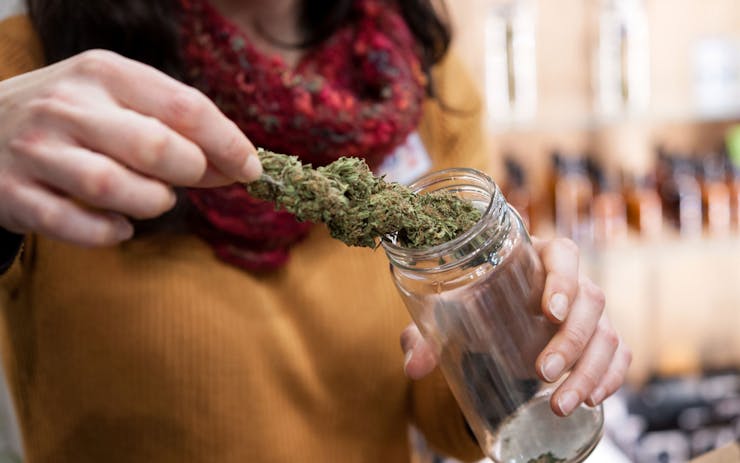Michigan’s winter forecast just a got a little rosier: Those punishing early-winter blizzards will come with a side of frosty, newly legal cannabis nugs.
Adult-use cannabis sales in Michigan could begin as soon as December 1.
On Wednesday, Michigan state regulators approved the movement of pre-existing medical marijuana products into a newly licensed recreational supply chain—allowing maybe a dozen adult-use stores to sell cannabis flower, extracts, and edibles as soon as Dec. 1. The number of licensed products and retailers will slowly increase through 2020.
The Dec. 1 start date is a gift to advocates, aficionados, and Michigan’s cannabis industry. Most observers expected the opening of adult-use stores to wait for the first harvest of purely recreational crops in 2020. Instead, the Michigan Marijuana Regulatory Agency ruled that some licensed medical dispensaries can designate up to half of their inventory for the adult-use market.
Looking for legal cannabis? Leafly has all your local menus
41 stores pre-qualified for licenses
Michigan already has an advanced medical cannabis system, and 41 medical cannabis stores have already pre-qualified for adult-use licenses. However, just 22 jurisdictions in Michigan have laws on the books allowing cannabis stores—1,393 have opted out. Sales will not begin Dec. 1 in Detroit, where red tape is slowing the roll-out, according to the Detroit Free Press. Instead, smaller outlying cities will start first.
Michigan legalized with the Michigan Regulation and Taxation of Marihuana Act (MRTMA), passed in 2018. Proposal 1 gave the state one year to begin regulating cannabis production and sales. Smoking or vaping cannabis in public remains prohibited, as does driving while under the influence of cannabis. Residents 21 and older may cultivate (with permission of the property owner) up to 12 plants per household, subject to restrictions.
Legal, tested supplies of cannabis can’t come soon enough to Michigan, where 46 residents have gotten sick and one has died from contaminated THC vaporizer cartridges bought off the street market. In October, one injured teen required a double-lung transplant, which has a median survival rate of seven years.
Growers and retailers report elation at the chance to serve Michiganders sooner.
“We’re stoked,” a Michigan cannabis operator told the Free Press.





